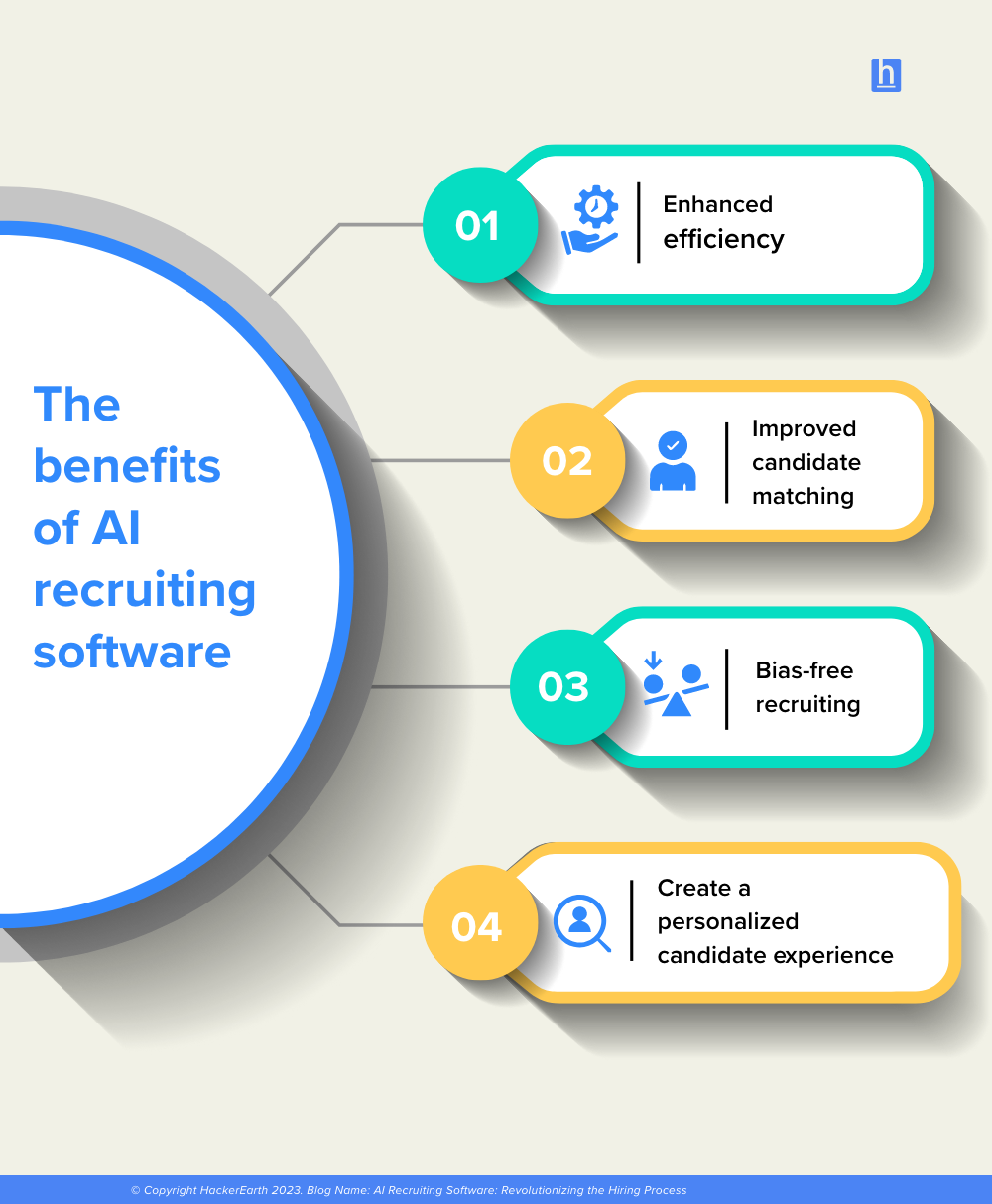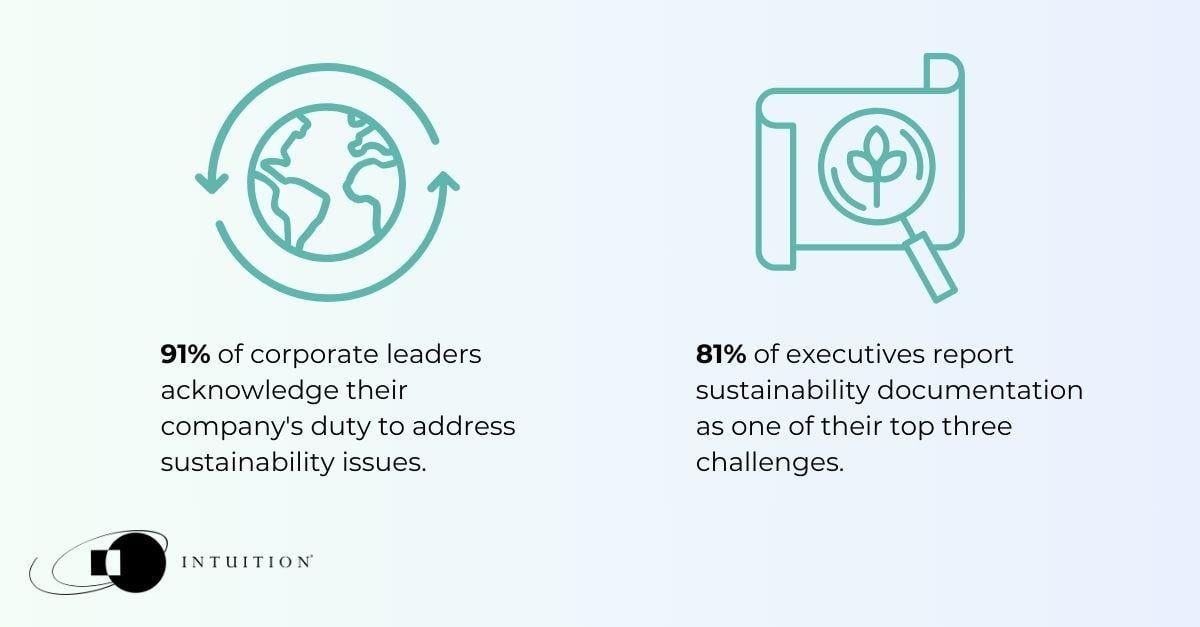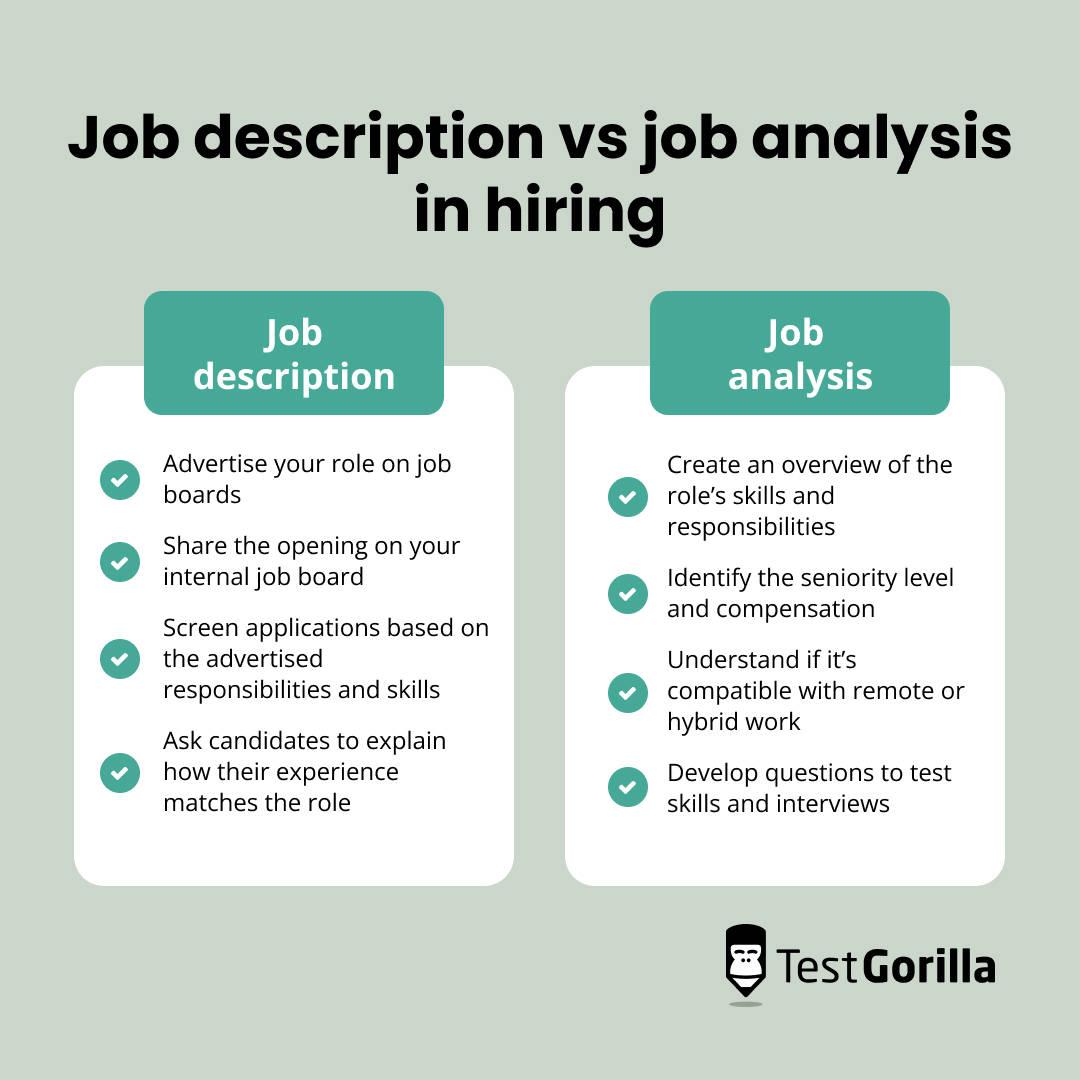The world of recruitment is changing at an unprecedented pace, and Artificial Intelligence (AI) is leading this revolution. Gone are the days when recruiters had to sift through hundreds of resumes or manually schedule interviews. AI has become a game-changer, automating routine tasks, analyzing complex data, and ultimately helping companies attract and hire the best talent. But while AI is transforming recruitment, it's not here to replace humans; rather, it's enhancing the process. By eliminating tedious work, AI allows recruiters to focus on building relationships and making smarter, data-driven decisions.
In fact, AI's potential to streamline hiring is vast. With companies increasingly adopting AI technologies, it's no surprise that 96% of recruiters say AI has the potential to revolutionize their industry. Or that 53% say that they are using ChatGPT and other IA tools in their day to day.
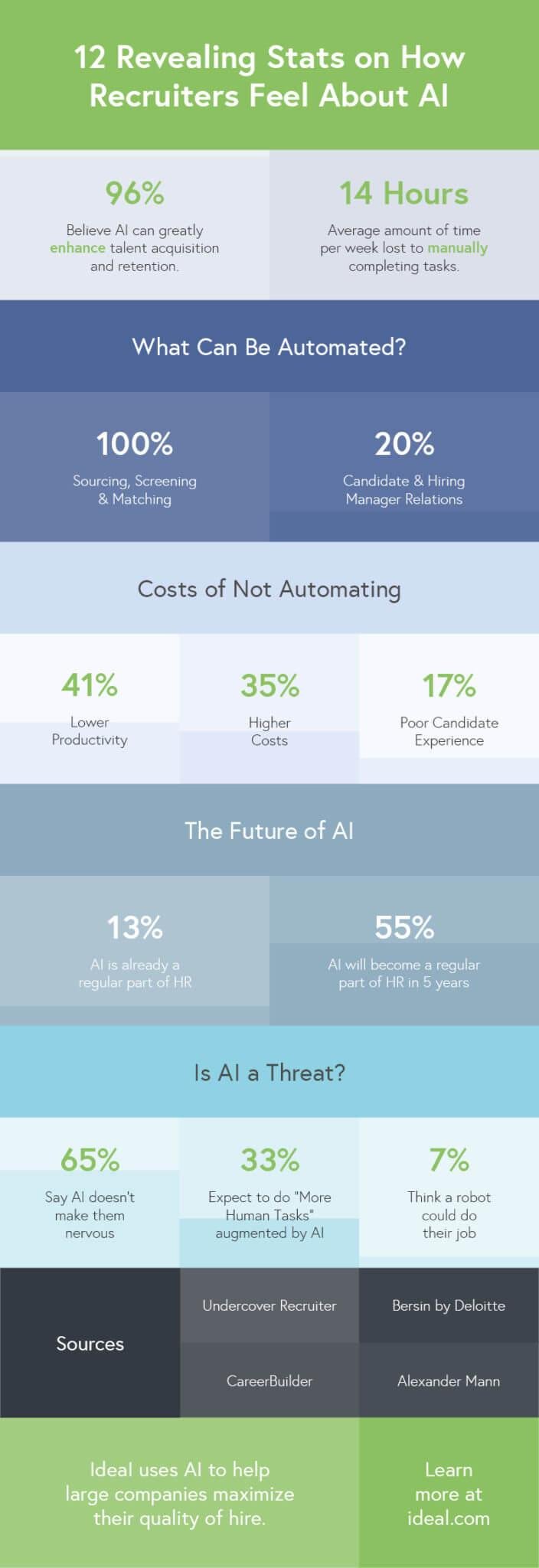 Finding great use cases for each profession will be the key of the AI revolution. Source: Ideal.com
Finding great use cases for each profession will be the key of the AI revolution. Source: Ideal.com
AI's Disruptive Power in Recruitment
AI's impact on recruitment is most visible in its ability to automate repetitive tasks, making the hiring process more efficient. For example, AI can instantly screen resumes, identify top candidates based on predefined criteria, and even schedule interviews without human intervention. It also offers advanced data analytics capabilities, helping organizations match candidates to roles more accurately and efficiently.
In addition to automation, AI is redefining how employers approach candidate experience. With AI-driven chatbots, candidates can receive real-time responses to their questions, personalized job suggestions, and updates on the hiring process. A study by PwC found that 55% of HR professionals believe AI will make their recruitment processes more efficient.
5 Areas Where AI's Impact is Immediate
1. Candidate Sourcing and Screening
One of AI's most significant contributions is in candidate sourcing and screening. By scanning vast pools of applications, AI can quickly identify candidates that match the required skills and qualifications. This process not only saves time but also ensures no qualified candidate is overlooked. AI algorithms can even be trained to reduce unconscious bias, promoting diversity in hiring by identifying talent from underrepresented groups. Tools such as
A good example is LinkedIn's AI-powered sourcing tool, which allows recruiters to find top talent using machine learning and big data. This technology helps companies focus on skills and potential rather than just resumes, a trend that's gaining traction across industries.
Examples of AI sourcing tools:
2. Automated Interview Scheduling and Pre-Assessments
Another area where AI shines is automating interview scheduling. AI platforms can coordinate interview slots by aligning candidate availability with interviewers' schedules, cutting out the tedious back-and-forth emails.
AI also powers pre-assessment tools that evaluate a candidate's skills and cultural fit before they meet a human recruiter. For instance, companies like HireVue use AI-driven video assessments to analyze candidate responses, helping recruiters shortlist top talent faster. Research from SHRM suggests that AI-powered tools can reduce time-to-hire by 50%, making the process more efficient for both employers and candidates.
If that were true, reducing time-to-hire by 50% would really be a game-changer. Can you imagine going from 4 to 2 weeks to hire someone? Of course this is a yet to be realised promise, but it's a real possibility down the line as AI capabilities improve and itegrate with the rest of tools.
Top Tools
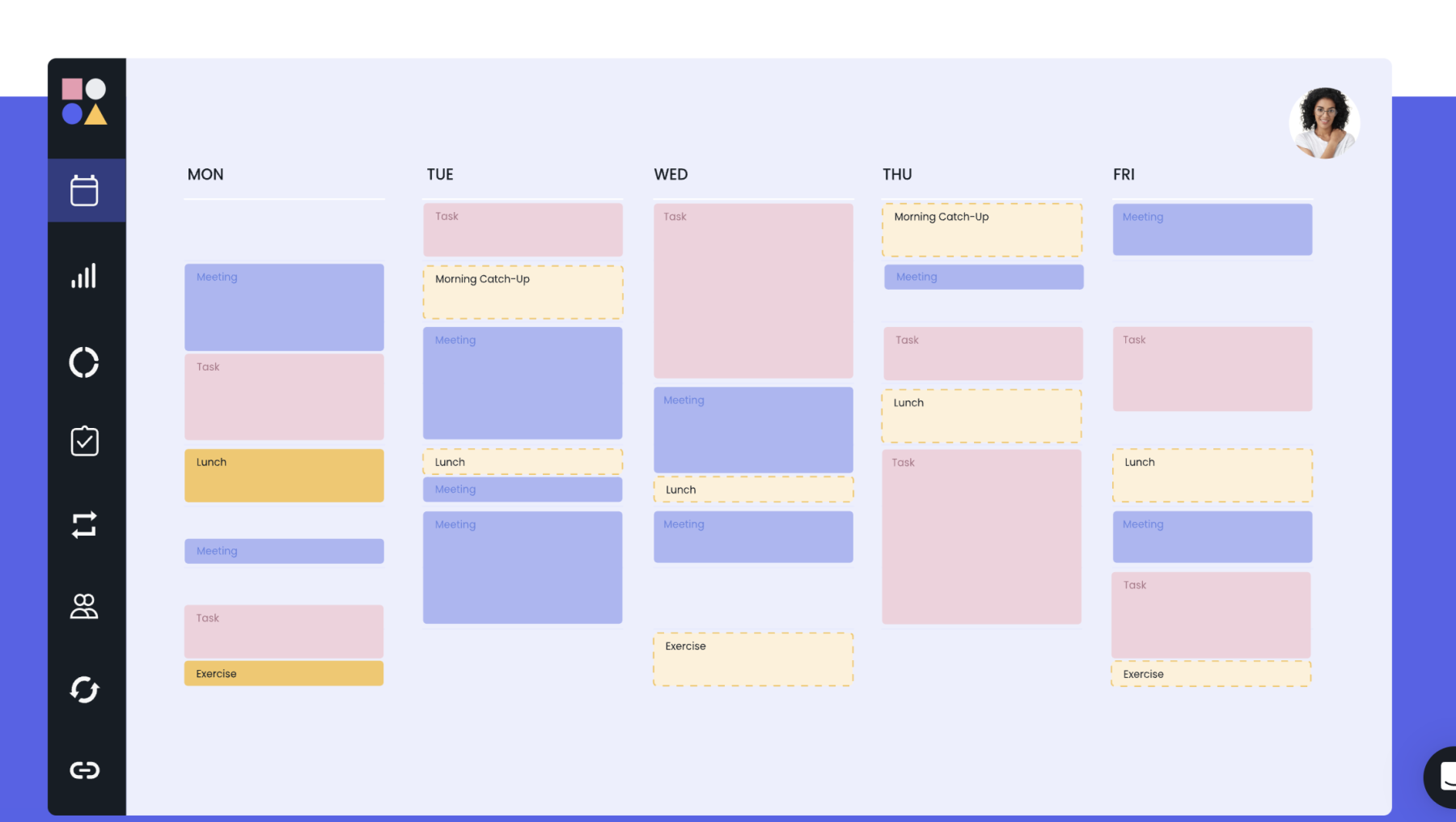
The beauty of calendars. Source: reclaim
3. Candidate Experience Personalization
Personalization is key to attracting top talent, and AI helps create a more engaging candidate experience.
Through the use of AI-powered chatbots, candidates receive real-time updates, personalized recommendations, and even answers to frequently asked questions-keeping them engaged throughout the recruitment process.
This not only improves candidate satisfaction but also enhances the employer brand. A report by McKinsey highlights that AI personalization can lead to better engagement rates, reducing dropout during the recruitment funnel and keeping talent pipelines strong.
Top Chatbots Tools for recruitment
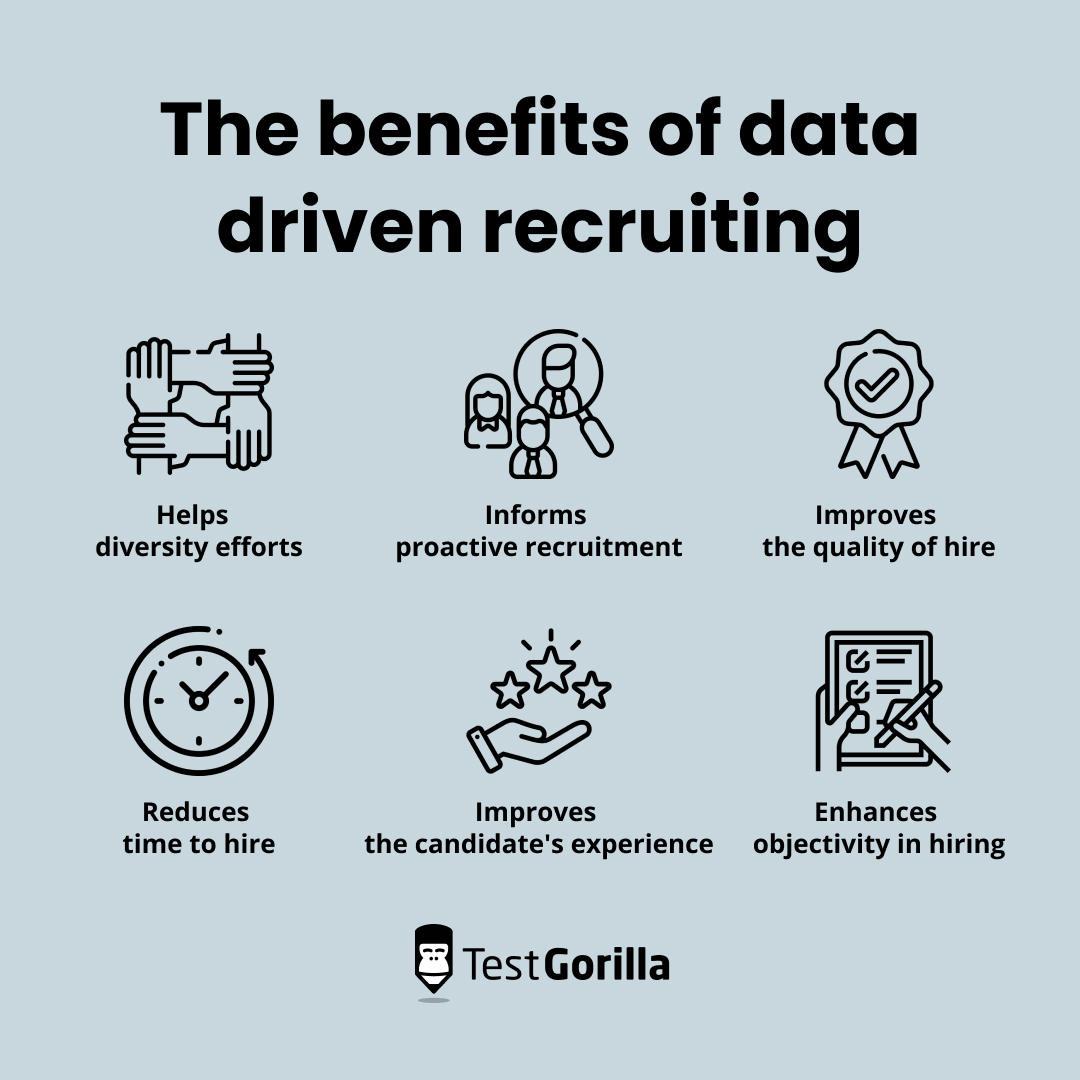 Even though all is relative, data make it less so. Source: TestGorilla
Even though all is relative, data make it less so. Source: TestGorilla
4. Data-Driven Candidate Matching and Shortlisting
AI's power lies in its ability to analyze candidate data from resumes, skill tests, and other assessments to predict how well a candidate fits a role. By using machine learning algorithms, AI evaluates factors such as qualifications, past experience, and even cultural fit, providing recruiters with a more refined shortlist of candidates. Importantly, AI reduces the influence of unconscious bias, offering a more objective approach to hiring decisions. An article from Linkedin found that AI-driven matching systems improved both candidate quality and retention rates, making them a critical asset for businesses looking to optimize their recruitment strategies.
Top Data Driven Tools for recruitment
5. Employer Branding and Candidate Insights
Finally, AI plays a significant role in enhancing employer branding. By analyzing data from social media platforms and job boards, AI can provide insights into candidate preferences, expectations, and behaviors. This information allows employers to refine their branding strategies to attract top talent. Additionally, AI can monitor reviews and comments about the company, helping HR teams address issues that may impact the brand's reputation.According to Glassdoor, companies that leverage AI to understand candidate insights can improve their branding efforts and create a more compelling narrative for potential hires.
Top Employ branding and canidate insights tools
The Human Touch Still Matters
While AI offers tremendous benefits, it's essential to remember that human interaction is still crucial in recruitment. AI can handle data and automate processes, but it cannot replace the intuition, empathy, and relationship-building that recruiters bring to the table. In the final stages of the hiring process, human judgment is key to ensuring that both the candidate and the company align on values, culture, and goals. As Forbes points out, AI works best when paired with human expertise, allowing recruiters to focus on the human elements of hiring While leaving the data-heavy tasks to machines.

Source: Heckerbella.com
Conclusion: Embracing the Future of Recruitment
AI is rapidly transforming recruitment by automating routine tasks, providing personalized candidate experiences, and offering data-driven insights for more informed decision-making. From sourcing to shortlisting candidates, AI has immediate benefits that enhance efficiency, save time, and reduce bias. However, while AI is a powerful tool, the human touch remains critical, particularly in fostering meaningful relationships and making final hiring decisions.
Prosperity
If you are seeking a job in digital or need assistance with your recruitment efforts, check out our website! https://www.prosperity.ie/
If you want to know more about the recruitment process at Prosperity get in touch!
Moreover, if you are looking for guidance on salaries, download our 2024 Salary Survey!


